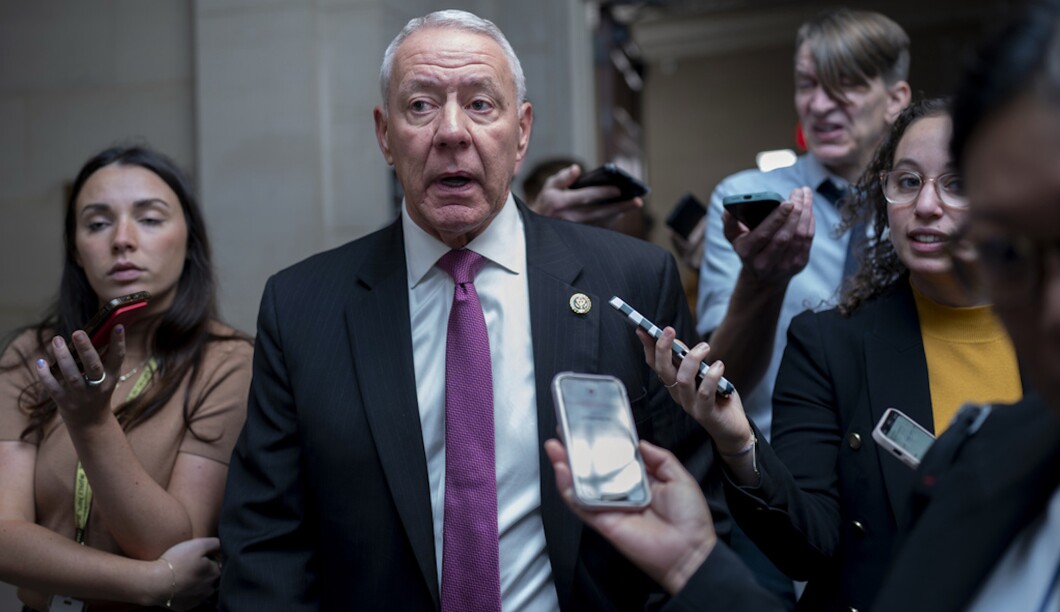
As more lawmakers announce their retirements from the House, a handful of Republican incumbents are expressing their dissatisfaction with the GOP-controlled lower chamber as a reason for their exit.
More than 30 House incumbents have already announced they won’t seek reelection, marking one of the highest rates of retirement this early into an election cycle over the last six years. That includes 11 Republicans who have announced they won’t run again in 2024, as well as 20 Democrats, leaving a total of 31 seats up for grabs so far.
CAN TRUMP MAKE OBAMACARE REPLACEMENT A RALLYING CRY FOR GOP AGAIN?
The reasoning behind the lawmakers’ retirements varies, with some citing family reasons and others seeking higher office. But there are a handful of seasoned lawmakers who say they have become disillusioned with their work over the last 11 months, growing weary of the politicization that appears to hinder their progress.
“I am frustrated that this place doesn’t address the big issues,” Rep. Ken Buck (R-CO) told the Washington Examiner, pointing to examples such as Medicare and Social Security solvency.

“In order to convince the American people to elect us with the kind of majorities we need to pass the solutions, we need to have credibility,” Buck said. “And we lack credibility when we lie about the election results and we lie about the events on Jan. 6, when we lie about the Jan. 6 defendants. And I think that it’s important for us to recognize that the ability to govern depends on telling the truth.”
Other GOP lawmakers lamented that it’s become more difficult to advance their legislative priorities, even more so than in the past.
“It’s hard to get anything done here,” Rep. Debbie Lesko (R-AZ) told Punchbowl News. “I served in the state legislature before here, and I was chairman of the Ways and Means, chairman of Senate Appropriations, and we got big things done. In good times, this place is frustrating and hard to get things done, but now it’s especially hard.”
The last 11 months in the House have been marked by periods of instability and unprecedented votes to remove former House Speaker Kevin McCarthy (R-CA) from leadership, leaving the chamber at a standstill for more than three weeks.
Now even McCarthy, one of the party’s most powerful members and prolific fundraisers, is also considering an early exit, which could leave a major hole in the House GOP. McCarthy has reportedly told donors he is looking to “get the hell out” of Congress, which would leave Republicans with an even slimmer majority if he decides to step down before the end of his term, sources familiar with the situation told Axios.
There have also been moments of tension among GOP lawmakers, resulting in terse back-and-forths on the floor and alleged physical altercations. Those high-profile squabbles could come back to haunt House Republicans as they seek to defend their already-slim majority next year and convince voters they can effectively govern.
“It’s no wonder Republicans are running for the retirement exits given the chaos and dysfunction dominating their caucus,” Viet Shelton, the spokesman for the Democratic Congressional Campaign Committee, said. “The public sees it too, and it’s against this backdrop of a failed Republican majority that voters will be casting their ballots next year.”
However, Republicans have pointed to the retirement playing field as benefiting their chances, noting Democrats must defend in far more competitive districts.
Of the 31 open House races, only seven are considered to be competitive seats, all of which are held by Democrats. Those include the seats held by Reps. Elissa Slotkin (D-MI) and Dan Kildee (D-MI), which are both rated as toss-ups by the nonpartisan Cook Political Report.
Meanwhile, nearly all 11 Republican districts, with the exception of the seat held by Rep. George Santos (R-NY), are considered reliably red — putting the GOP in a good position to go on the offensive heading into 2024.
“Typically, if the party out of power is going to take back the House, they need a sense of excitement, and what they need is their members to stay around,” GOP strategist John Feehery told the Washington Examiner. “The fact that they’re [Democrats] not staying around says to me that I don’t think they’re going to take the House.”
House Republicans have also pointed to intraparty disagreements among Democrats that could play in the GOP’s favor to defend their majority.
“A civil war in their caucus over support for Israel, a historically unpopular president, and an inexperienced leader in Hakeem Jeffries begs the question: ‘Why stay?’” Will Reinert, the National Republican Congressional Committee’s national press secretary, said. “Combine that with the climb out of the minority getting steeper by the day — House Democrats are smart to make a mad dash for the exits.”
It’s not clear how much the inner workings and personal relationships among lawmakers will play into voters’ decisions next year since congressional job approval has remained quite stagnant over the last decade. On average, Congress has a 72% disapproval rating among U.S. voters, according to data compiled by RealClearPolitics.
CLICK HERE TO READ MORE FROM THE WASHINGTON EXAMINER
That’s similar to the high disapproval ratings from when Democrats controlled the House, indicating the current state of the House may not be a significant factor in the 2024 cycle. And with more Democrats retiring than their GOP counterparts, Republicans say those numbers give them an advantage heading into the next year.
“I think a lot of [Democrats] are retiring because they know they weren’t going to be able to win … especially when it’s Trump’s ticket,” Feehery said. “So I think that those numbers bode well for Republicans keeping the House.”




